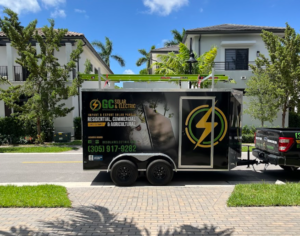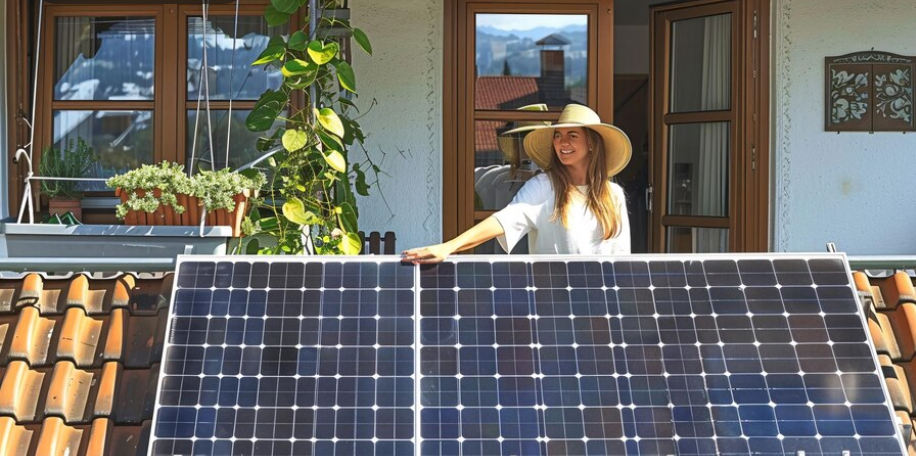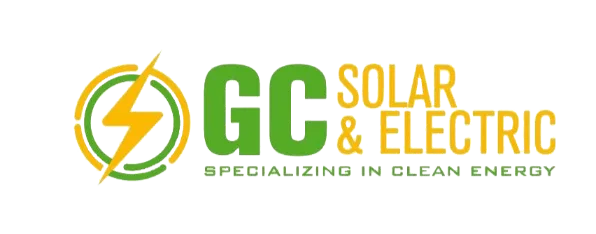

In this guide, we’ll walk you through the financial support available, from grants to low-interest loans, to help you bring solar energy to your property. Whether you’re looking to power your home or considering a commercial solar installation, GC Solar & Electric has the expertise to guide you through every step, including financing.
One of the most significant financial benefits of going solar is the federal solar tax credit, known as the Investment Tax Credit (ITC). This credit allows you to deduct a percentage of your solar panel installation cost from your federal taxes. For residential solar panel for home installations, this credit can cover a substantial portion of the total cost.
The federal ITC applies to both residential and commercial solar installation projects, making it a great option for both homeowners and businesses looking to invest in renewable energy. Keep in mind that this credit percentage can change over time, so it’s important to check the current rate when planning your solar panel miami project.
In addition to the federal tax credit, Florida offers a number of incentives to make solar energy more accessible:
Property Tax Exemption for Renewable Energy: Florida provides a property tax exemption for the added value of your solar system. When you install solar panels on your home, the value of your property may increase. Fortunately, Florida law exempts this added value from property taxes, making solar panel for home systems even more attractive.
Sales Tax Exemption: Solar panels and related equipment are exempt from Florida’s state sales tax. This exemption can save you up to 6% on the purchase price of your solar energy system, which is a significant savings for any solar project.
Net Metering: Florida’s net metering policy allows homeowners and businesses to sell any excess electricity generated by their solar panels back to the grid. This not only reduces your electricity bill but can also result in credits on your future utility bills. Net metering is a fantastic way to maximize the return on your investment, particularly in a state like Florida with abundant sunshine.
Besides tax credits and exemptions, several financing options are available to make solar installation more affordable. GC Solar & Electric offers expert advice on the best financing solutions to fit your needs, whether you’re considering solar for your home or for a commercial solar installation project.
Low-Interest Loans: Many financial institutions in Florida offer low-interest loans specifically for solar panel installations. These loans allow homeowners and businesses to spread the cost of their solar panels over several years, making the upfront cost more manageable.
PACE Financing: The Property Assessed Clean Energy (PACE) program is another financing option available to Floridians. Through PACE, homeowners can finance solar panels with no upfront costs, paying for the system through their property tax bills over time. This makes it easier for homeowners to go solar without the need for large initial payments.
Grants and Rebates: While Florida does not have a state-wide rebate program for solar panels, local utilities and municipalities may offer rebates and grants for solar panel for home systems. GC Solar & Electric can help you identify local programs and ensure you take full advantage of these savings opportunities.
One important step in your solar project is securing the necessary solar permits before installation begins. In Florida, the permitting process can vary by municipality, but GC Solar & Electric has extensive experience navigating these requirements. We handle the entire process for you, from applying for solar permits to ensuring the installation complies with local codes. This way, you can focus on enjoying the benefits of your new solar system.
When you work with GC Solar & Electric, you’ll receive top-quality service and expertise, whether you’re installing solar panels on your home or planning a commercial solar installation project. We specialize in solar panel installation and are committed to helping Floridians harness the power of renewable energy.
To learn more about how to finance your solar panel installation or to get a free consultation, visit GC Solar & Electric’s website today. Let us help you make the switch to clean, renewable energy in Florida!
FAQ’s
1. Can I install solar panels on my property if I have a homeowner’s association (HOA)?
Yes, Florida has laws that protect homeowners’ rights to install solar panels, even if their property is within an HOA. However, it’s always a good idea to check with your HOA for any guidelines or restrictions.
2. How long does it take to get a return on investment (ROI) for solar panels in Florida?
The ROI varies depending on the size of your system, energy consumption, and available incentives. On average, homeowners can see a return on their solar panel for home investment within 7-10 years.
3. Are there any maintenance costs associated with solar panels?
Solar panels are low maintenance, requiring minimal upkeep. Routine cleaning and occasional inspections are typically all that’s needed to ensure optimal performance.
4. How do I know if my roof is suitable for solar panels?
The best way to determine if your roof is suitable is by consulting with a professional. GC Solar & Electric offers free evaluations to assess your roof’s solar potential.
5. Do solar panels work during cloudy or rainy days?
Yes, while solar panels are most efficient under direct sunlight, they can still generate electricity on cloudy or rainy days. The amount of energy produced will be lower compared to sunny days, but your system will continue to work.

